

“Even the best-designed, -built, and -maintained buildings waste energy. In fact, virtually all heating, ventilation, and air conditioning (HVAC) equipment, lighting, and building automation systems (BAS) compromise efficiency. Regardless of age, buildings over 50,000 square feet can benefit from a process called retro-commissioning (RCx),” writes Sam Cooke of SCS Engineers in Public Works Magazine.
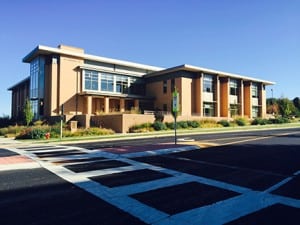
Read the article: Public Works Magazine December 2015, print issue and online.
SCS Services offered to municipalities, hospitals, manufacturers, and businesses.

SCS Engineers ranks 4th on the Los Angeles Business Journal’s list of the top 25 largest environmental services firms in the Los Angeles region. “We’re very proud of our environmental work in California and across the nation,“ stated Pat Sullivan, BCES, CPP, REPA, and a Senior Vice President of SCS Engineers. “It’s especially rewarding to know that we make a positive difference in our backyard and for the regional economy.”
See the Los Angeles Business Journal List
An SCS pro forma model for waste management gives you the much-needed ability to analyze how different elements of a business plan will impact your cash flows and value. Subsequently, using individual forecasts and operations data, you can analyze when in the future you might need financing allowing you the time to plan to acquire sufficient resources, permits, and equipment. Read the Merced County case study here to learn more.
SCS Engineers assisted the Merced County, California, Regional Waste Management Authority (RWA) in developing a Pro Forma Model that encompasses projected operational costs and revenues to help decision-makers develop timely cash flow forecasts. The RWA now has a useful tool for annual budgeting and developing long-term capital policies.

After several years of revenue declines for numerous reasons, including the recession, a change in management in 2012 ordered a re-assessment of RWA’s operational and administrative functions. Throughout the year-long process, a new Regional Waste Director was selected to implement a progressive strategy that would realize operational efficiencies, cost savings, an expanded customer base, and lower long-term debt through bond refinancing. These measures provided considerable benefit, particularly in regards to the long-term financial health of the agency; however, it was not clear if cash could be generated quickly enough to meet the existing need. As a result, the agency hired a rate consultant in April 2015 to assess the anticipated shortfall and prepare a report to the RWA’s governing board.
The RWA owns and operates two disposal and recycling facilities, each located near the population centers of Merced County. Both landfills need expansions to increase disposal capacity in the coming years. SCS Engineers developed a Pro Forma Model to help the RWA prepare a long-term cash flow analysis and assess whether or not funds were available from operations to forestall a bond issue for the capital improvements as well as to fund adequate emergency reserves. At the beginning of SCS’s engagement, RWA staff provided background data and information concerning residential collection revenues and operating expenses.
The Pro Forma Model estimated annual net revenues during the 12-year planning horizon; determined that the current debt service is a major drain until the bonds mature in FY 2026/27; calculated that funds for projected capital improvements, fleet replacement, and a new “Rainy Day Fund” can be realized even if the RWA receives low waste deliveries to the landfill; and projected cash reserves. The model recommended that the RWA consider funding a landfill gas to energy project out of cash reserves rather than bond proceeds and projected annual revenues from methane sales.
The RWA adopted the findings of the proposed pro forma model in October 2015. Conducting the pro forma modeling effort enabled the RWA’s decision-makers to project costs of the various capital, fleet, and waste flow options. Key among the lessons learned was the implementation of a “Rainy Day Fund” to provide a long-term financial backstop for unforeseen events in landfill operations that cannot be predicted today. Such events could include groundwater and landfill gas remediation, issues with landfill liners, and weather events. The fund is capped at 25 percent of the RWA’s annual operating costs, which can also provide three to four months of operating expenses. While typical of many large County or municipal General Funds, it is less typical of individual enterprise funds in the past. Such Rainy Day Funds are becoming more and more prominent across solid waste agencies in the United States.
Lastly, the RWA now has a financial tool that can be updated annually and will continue to project future revenues and capital expenditures and ultimately forecast rate needs more accurately.
Marc Rogoff, Ph.D., is a Project Director for SCS Engineers’ and our National Expert on Solid Waste Rate Studies. Marc has over 30 years of experience in solid waste management as a public agency manager and consultant and has managed more than 200 consulting assignments across the United States on all facets of solid waste management. He has written and co-authored many articles, including the following:
Conducting Solid Waste Rate Studies and Business Plans
Trends in Solid Waste Collection
Click here for more information about SCS Engineers Solid Waste Services
SCS Engineers – highly ranked for environmental consulting – San Diego Business Journal
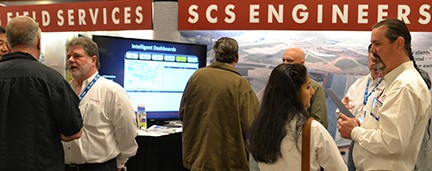
The San Diego Business Journal listed SCS Engineers as one of the top Environmental Consultants in the region. The listing was researched and compiled by Courtney Shamrell of SDBJ. Environmental services covered by the list include; site assessments, environmental sciences, NEPA/CEQA activities, environmental remediation, work for federal and local governments, work for commercial enterprises, and other environmental engineering projects.
Thank you to our clients and to our environmental professionals who put SCS sustainable environmental solutions to work.
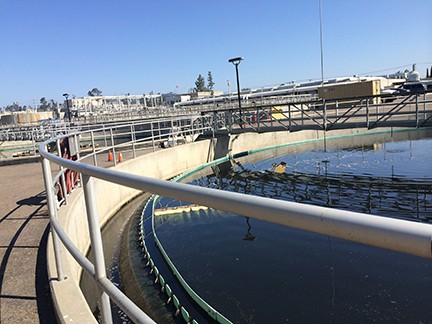
The Industrial General Permit is an NPDES permit that regulates discharges of stormwater associated with industrial activity. Based on the projected revenue and the predicted surplus, SWRCB is working to refine program funding and plans to adjust the current IGP permit fee structure.
Glen Osterhage, Fee Branch Manager for the California State Water Resources Control Board (SWRCB), Division of Administrative Services, met with industry leaders on November 3, 2015, to discuss potential changes to the stormwater Industrial General Permit (IGP) fee structure. Meeting attendees included: SCS Engineers, the Industrial Environmental Association (IEA), California Stormwater Quality Association (CASQA), the California Taxpayers Association (CTA), California Chamber of Commerce, the Independent Energy Producers Association (IEPA), and the host – California Manufacturing and Technology Association (CMTA).
The SWRCB funds eight core permit programs through the Waste Discharge Permit Fund, which pays for over 800 staff. California has cut allocations for agency staff funding by approximately $30 million dollars, forcing SWRBC to distribute its cost burden across the permit fee base. Currently, IGP permit fee revenue is $14.4 million (a single permit fee of $1,791 multiplied by approximately 8,035 permittees). However, SWRCB projects higher revenues due to increased enrollment when all newly required permittees file. Core programs are also subsidized with excess funds coming from the Construction Permit fees (excess of $2M over required $2M last year). Based on the current projected revenue and the predicted surplus the SWRCB is working to refine the IGP program funding and plans to adjust the structure of the permit fee from a flat rate to a rate adjusted for facility size, project complexity, and the threat to water quality.
Following the 2017 to 2018 year permit periods, the SWRCB will have better estimates with which they can accurately adjust fees. The SWRCB is exploring the potential for providing fee discounts for benefits or subsidizing other permit compliance cost burdens. For now, the No Exposure Certification (NEC) IGP Permits are likely to remain a flat fee, but their value may change following additional baseline permit data results.
The SWRCB’s revenue goal is, as always, to break-even; any proposed change to the fee structure is not intended to boost agency revenue over expenses. Another goal is to have data readily available for selecting a permit fee tier from the information submitted on the IGP’s online database application (Storm Water Multiple Application & Report Tracking System, SMARTS, smarts.waterboards.ca.gov).
The SWRCB will have additional meetings to collect comments on the proposed change in hopes of creating a consensus with permittees on these impending changes.
SCS Engineers will provide information as it becomes available. Our professionals are available to assist newly required permittees with filing and compliance requirements.
Contact SCS’s Stormwater Manager, Cory Jones at 1-858-571-5500 or .
Stormwater Management Services
Technical bulletins provide salient information in a condensed format. These summaries are useful to understand and start to plan for potential impacts to your business. Both bulletins posted today include deadlines and additional resources with contact information to help answer your questions. The two bulletins posted today are as follows:
Clicking the title of each Technical Bulletin will take you to the full text. Each Bulletin may be shared, emailed, or printed.
About Pat Sullivan:
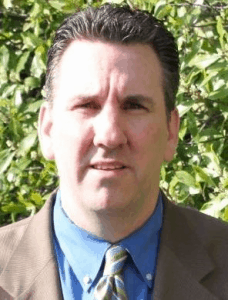
Pat Sullivan, BCES, CPP, REPA, is a Senior Vice President of SCS Engineers and our National Expert on the Landfill Clean Air Act and the New Source Performance Standard (NSPS). Mr. Sullivan has over 25 years of environmental engineering experience, specializing in solid and hazardous waste-related issues.
Click on Pat’s name to see his full qualifications and experience.
DDC Journal recently published an interesting article by Pat Sullivan, “Developing power plants that reduce environmental impacts.” http://viewer.zmags.com/publication/097d62a6#/097d62a6/24
Pat Sullivan, BCES, CPP, REPA, is a Senior Vice President of SCS Engineers and our National Expert on the Landfill Clean Air Act and the New Source Performance Standard (NSPS). Mr. Sullivan has over 25 years of environmental engineering experience, specializing in solid and hazardous waste-related issues.
The Solid Waste Association of North America – SWANA, is the largest member-based solid waste management association in the world.
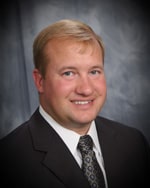
SCS Engineers proudly announces Nathan Hamm, P.E., is the recently elected President of the Kansas Sunflower SWANA chapter. Members of the chapter voted to elect Hamm to continue the leadership of John Hawk, the former chapter President and the General Manager of the McPherson Area Solid Waste Utility. Hamm’s term began on October 22, 2015, and will run for two years.
Nathan Hamm is a registered professional engineer in Kansas and five surrounding states with nearly two decades of experience in the field of environmental engineering. He is a Vice President at SCS and currently serves as the Overland Park –Kansas City Office Manager. As Office Manager, he is responsible for managing the technical and support personnel and the office’s financial performance and business development efforts. He also manages complex projects, maintains client relationships, and provides technical guidance.
“An environmental solution mandates innovative thinking and broad resources, “stated Hamm. “ Our Kansas SWANA chapter provides these and stays true to our principles; that’s how we remain effective and helpful to our members.”
Hamm’s career has concentrated on environmental solutions in solid waste management, alternative energy, power generation, and in agricultural production industries. He is a skilled leader developing and managing multi-disciplinary teams to achieve critical objectives.
Congratulations Nathan!
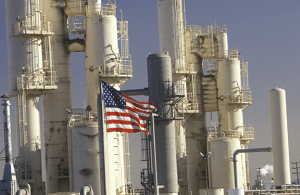
The U.S. Environmental Protection Agency (EPA) issued a final rule on September 29, 2015, seeking to further control emissions of hazardous air pollutants (HAPs) and volatile organic compounds (VOCs) from petroleum refineries.
This action finalizes the residual risk and technology review conducted for the petroleum refinery source category regulated under the National Emission Standards for Hazardous Air Pollutants (NESHAP; 40 CFR Part 63, Subpart UUU), including the refinery Maximum Achievable Control Technology Standard (MACT) 1 and Refinery MACT 2.
Click here to read the Technical Bulletin
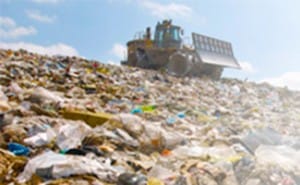 On Monday, October 27, 2015, the Solid Waste Association of North America–SWANA and the National Waste & Recycling Association– NWRA submitted joint comments to the U.S. Environmental Protection Agency– EPA on the proposed revisions of the Emissions Guidelines– EG and Compliance Times for Municipal Solid Waste Landfills and to the supplemental proposal to the Standards of Performance for Municipal Solid Waste Landfills.
On Monday, October 27, 2015, the Solid Waste Association of North America–SWANA and the National Waste & Recycling Association– NWRA submitted joint comments to the U.S. Environmental Protection Agency– EPA on the proposed revisions of the Emissions Guidelines– EG and Compliance Times for Municipal Solid Waste Landfills and to the supplemental proposal to the Standards of Performance for Municipal Solid Waste Landfills.
SCS Engineers has also submitted comments pertaining to the proposed EG and compliance revisions to the EPA. SCS leaders are involved in many outreach activities to help landfill owners and operators understand and prepare for the impact of the proposed modifications.
Contact SCS Engineers at for more information, or visit the SCS website for upcoming events and pertinent resources.